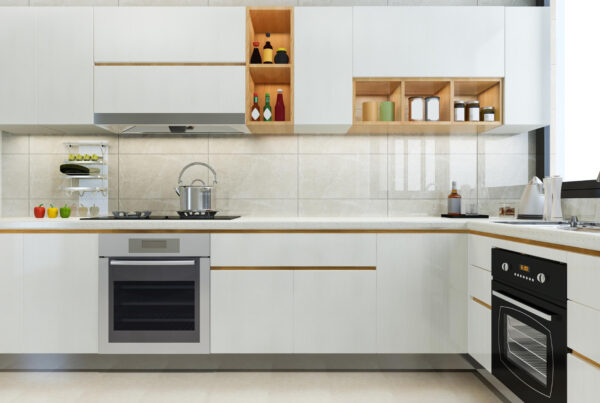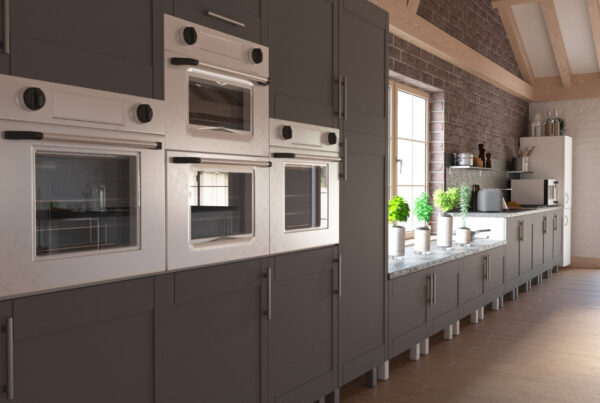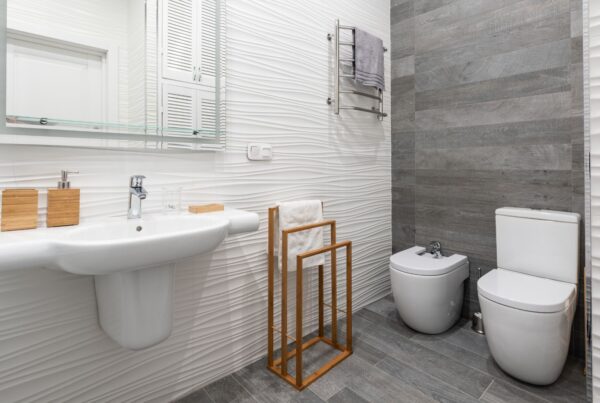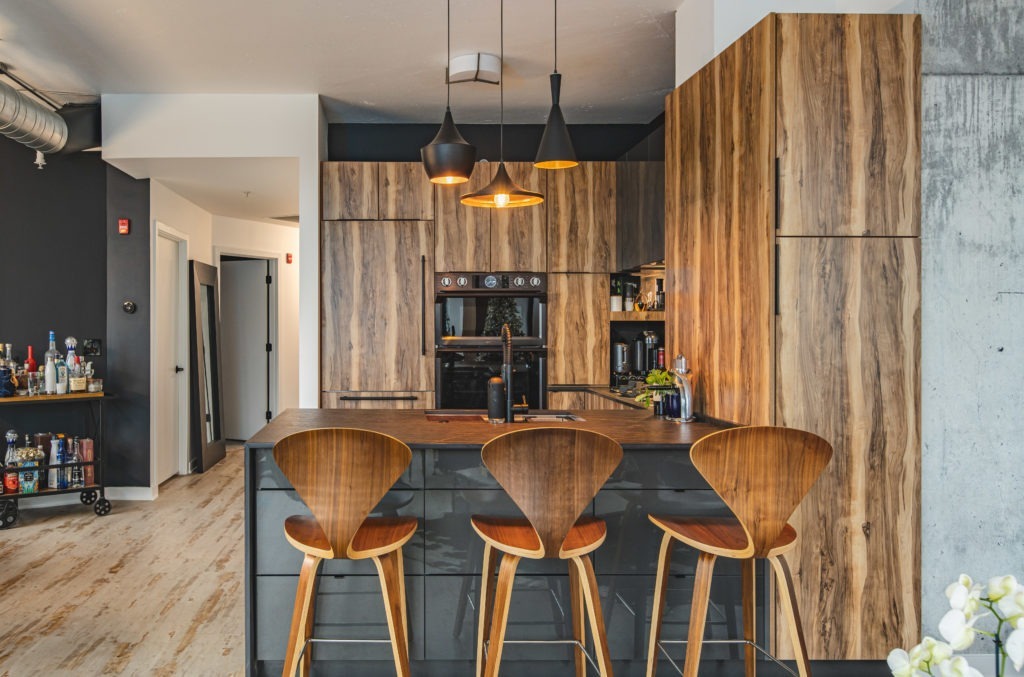
The length of a kitchen remodel in Falls Church is a key consideration when planning your renovation. Whether you’re updating a few features or undergoing a complete overhaul, understanding the timeline helps set realistic expectations. Minor updates, like painting or adding a backsplash, can take 1-4 weeks, while a standard remodel involving cabinet replacements or countertop upgrades typically lasts 8-10 weeks. For an extensive remodel that includes structural changes or custom materials, the timeline can extend beyond 10 weeks.
What is the Length of a Kitchen Remodel in Falls Church?
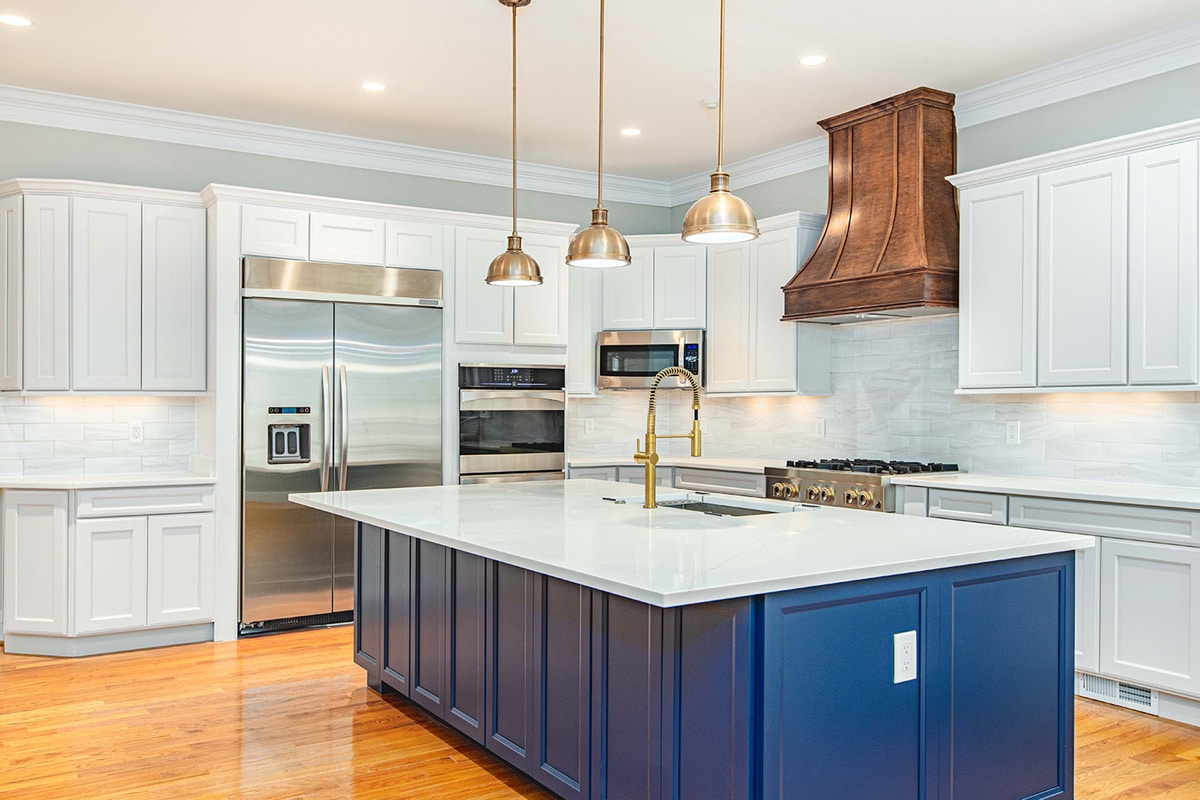
Timeline for a Kitchen Remodel in Falls Church
Short Remodels (1-4 Weeks):
- Scope: Minor updates like painting cabinets, adding a backsplash, and updating appliances.
- Factors: Minimal structural changes, ready availability of materials, and quick DIY execution or use of subcontractors.
Medium Remodels (8-10 Weeks):
- Scope: Installing new cabinets, replacing countertops, or reconfiguring kitchen layout within the existing footprint.
- Factors: Coordination of multiple trades, delivery time for standard materials, and manageable unforeseen issues.
- Notes: This is the typical timeline for a standard remodel with no major structural or plumbing changes.
Extensive Remodels (10+ Weeks):
- Scope: Adding/removing walls, rerouting plumbing/electrical, installing custom cabinetry, or sourcing high-end/custom materials.
- Factors: Complexity of structural changes, availability of custom or specialty items, and potential for delays due to complications.
- Notes: Be prepared for delays caused by unexpected repairs or permit requirements.
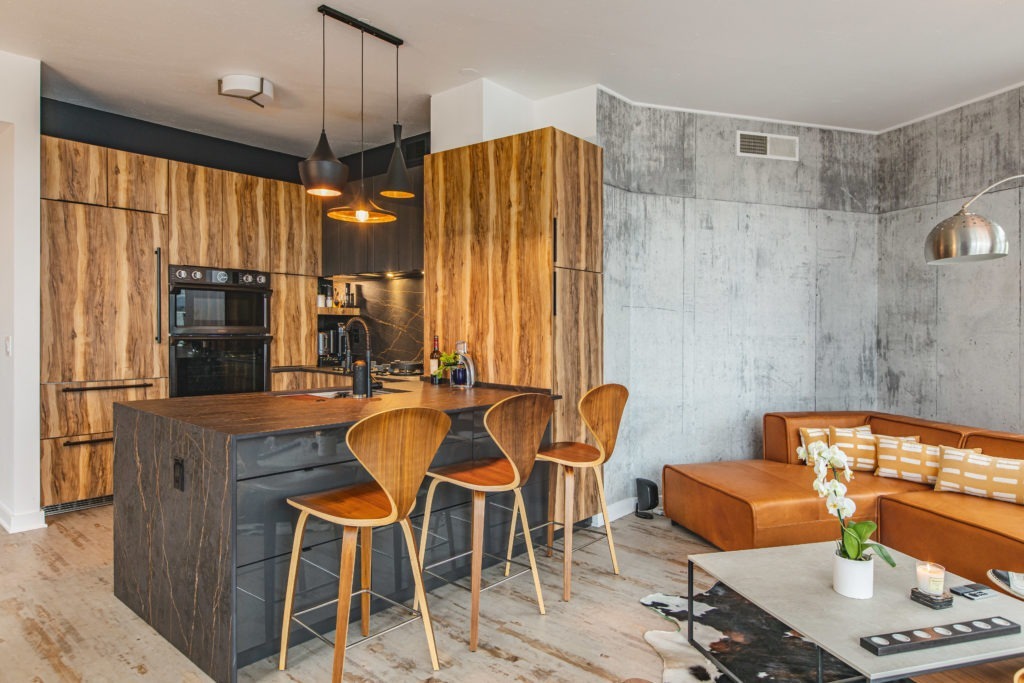
The timeline for a kitchen remodel in Falls Church ranges from 1-4 weeks for minor updates, 8-10 weeks for standard remodels, and 10+ weeks for extensive projects involving structural changes or custom materials, depending on the scope, material availability, and complexity of the work.
Factors that Contribute to Kitchen Remodel Length
The biggest factor that contributes to the kitchen remodeling in Fall Church is the scope of the project. Let’s say that you want to paint your cabinets, add a backsplash, and update a few appliances. You might be able to complete this over a short period of time and wrap up your kitchen remodel earlier.
On the other hand, if you plan to do something extensive such as adding new cabinets, adding or removing an island, countertops, or tearing down a non-load-bearing wall, it will take a much longer time.
Other factors include:
- The availability and price of the materials you select, including appliances.
- The time required to repair any complications or issues discovered while remodeling, such as a problem with the foundation, plumbing, or flooring.
- The ability to perform multiple parts of the project at once. For instance, having a contractor reface your cabinets while another installs a new kitchen countertop.
Another thing that distinguishes kitchen remodels from other home improvement projects is the sheer number of moving parts. Besides, unless you have a general contractor, you may need to coordinate several subcontractors such as plumbers, electricians, and appliance installers yourself.
Coordinating these subcontractors regarding what work is ready to be completed and what supplies are available can be a real challenge, especially if this is your first remodel.
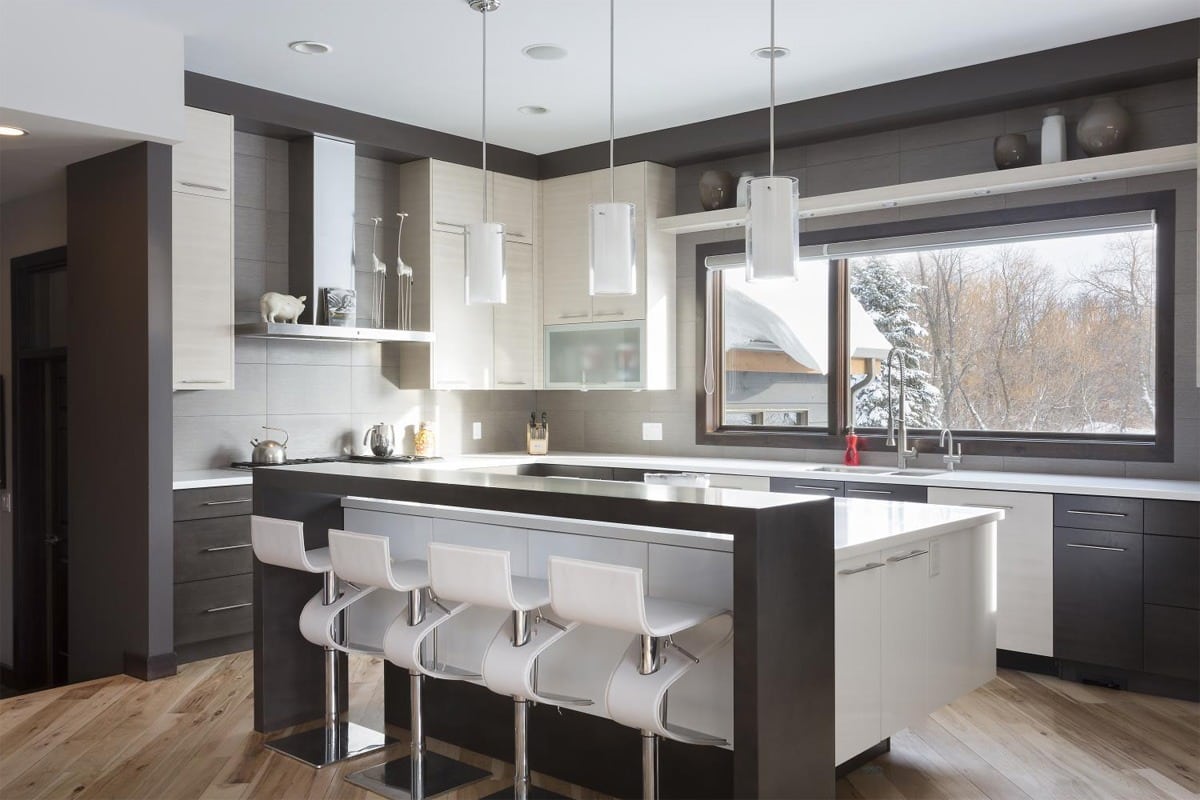
The length of a kitchen remodel in Falls Church is primarily determined by the scope of the project, availability of materials, ability to address complications, and efficient coordination of subcontractors.
DIY or Use a Contractor?
DIY is another factor that can impact the length of a kitchen remodel in Falls Church. You can do the remodel yourself, do some parts yourself and hire a subcontractor for others, or choosing a contractor for the complete project.
Some advantages of DIY include:
- Control over the speed and scope of the project
- Low to absolutely no labor costs
- Flexibility to plan different parts of the project around family events or any other obligations
Nevertheless, unless you can devote full days to this project until you are finished, having to schedule a kitchen remodel in Falls Church around a full-time work schedule can be tricky.
Some advantages of using a general contractor or subcontractors for your kitchen renovation include:
- Minimal time commitment from your part
- Assurance that contractor will complete the work on time
- Reduced risk of injuries (especially if you’re dealing with wall demolition or electrical work)
Finally, DIY may not save too much time if you compare it to hiring a professional contractor. Further, the decision of whether to DIY may turn on other considerations such as cost, your own remodeling skills, and contractor availability.
FAQs
1. How long does a typical kitchen remodel take in Falls Church?
A standard kitchen remodel in Falls Church typically takes 8 to 10 weeks. This includes work like replacing cabinets, upgrading countertops, and reconfiguring the layout without major structural changes. Smaller updates can take as little as 1-4 weeks, while extensive remodels may exceed 10 weeks.
2. What factors can delay a kitchen remodel in Falls Church?
Common causes of delays include material availability, unexpected repairs, and coordination issues with subcontractors. Structural changes, custom cabinetry, and rerouting plumbing or electrical systems can also add significant time to the project.
3. Should I remodel my kitchen myself or hire a contractor?
It depends on your experience, schedule, and budget. DIY remodels can save on labor costs and offer more flexibility, but they may take longer—especially if you’re balancing a full-time job. Hiring a contractor or subcontractors typically speeds up the process and ensures professional results, especially for complex tasks like electrical or plumbing work.





